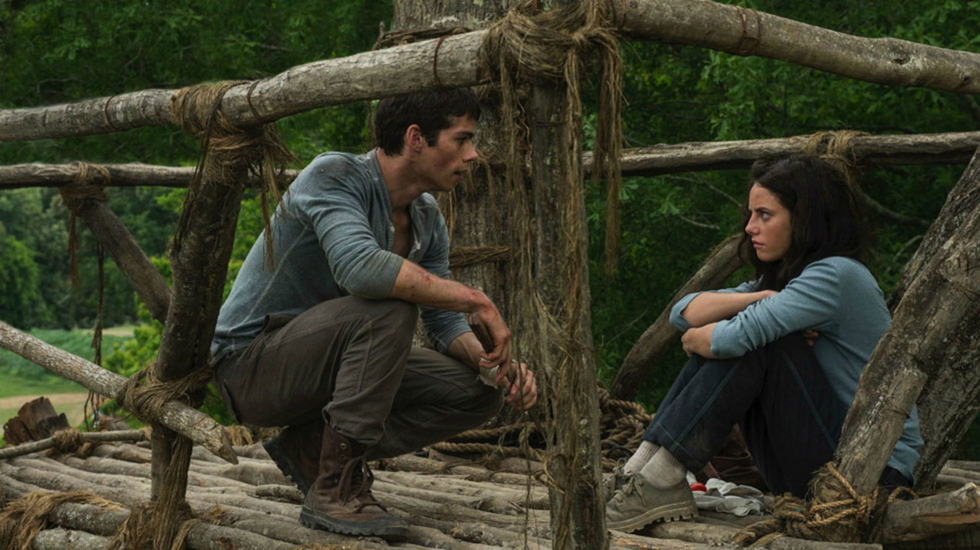
BY ZACHARY WIGON |
Racking Focus: The Changing Theatrical Experience
As competition from TV becomes increasingly strong, exhibitors will have to innovate.

As a fascinating and timely article in The Hollywood Reporter recently explained, the theatrical experience is being forced to innovate in order to compete with TV's popularity. This isn't the first time this has happened; back in the 50s, when TV was first becoming popular, studio heads freaked out and invented things like 3-D, Smell-O-Vision, and Cinemascope. Some of those innovations are still here; Smell-O-Vision, however, may rest in odor.
The latest news indicates that this September, a screen in a theater in LA will open that contains a technology called "Escape," which means that the film being screened can take advantage of not one, but three movie screens simultaneously; one screen is in the front, and two flank it, on the sides, coming out into the audience. The Maze Runner, an upcoming studio release, will be the first film to utilize the technology. The idea of 360-degree immersive screens is apparently not far off, either.
What does this all mean? Well, it seems like a plausible way for studios to preserve what has become - for better or worse - their bread and butter: tentpole action extravaganzas. Perhaps resigned to the reality that adults are flocking en masse to their TV sets and fleeing the theaters, studios are making a play for younger, spectacle-loving audiences with these new technologies, which will plant filmgoing somewhere on the fence between art form and amusement part ride. (And no, that's not meant derisively.) As films become more interactive and immersive - more like an experience, less like something meant to be studied as a work of art - one can imagine that the thrill of seeing a film like, say, Guardians of the Galaxy in theaters as opposed to on a laptop will be rightly preserved, and that's a wonderful thing.
But if this maneuver is what preserves the viability of theatrical box office revenue, it will come at the expense of dramas and perhaps even big studio comedies. There's nothing about seeing a great drama onscreen that can be all that enhanced by a 360-degree experience (although if someone wants to prove me wrong, I'm all for it!). Typically, such films are powered by strong performances and characters and compelling stories; the flash-whiz-bang of new gadgetry seems unlikely to gel with these old-fashioned modes of narrative. In effect, this may be the studios accepting that the future of Hollywood lies solely in spectacular event films, and necessitates leaving more character-oriented works behind. Unless, that is, there's a way to be innovative in the theatrical experience in a way that emphasizes storytelling in an interactive manner. That would be quite impressive, if it could be done.
